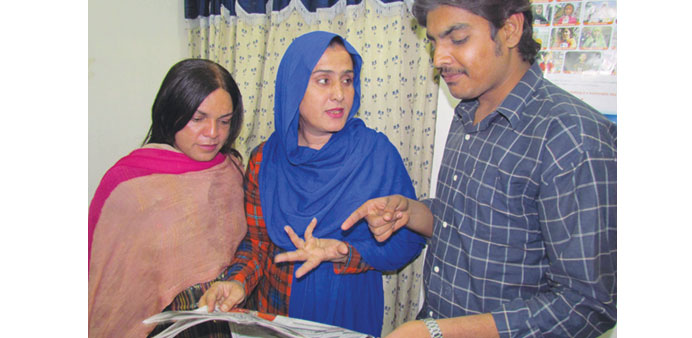|
|
A member of Pakistan’s transgender community is to contest upcoming general elections on a ticket of equal rights, saying the community has more to offer than begging or dancing at weddings.
The elections, due by mid-May, will mark the first democratic transition of power after an elected government’s full term in Pakistan’s 65-year history.
It will also be the first time Pakistan’s estimated 500,000 “eunuchs” are eligible to seek office, after the Supreme Court in 2011 ordered the government to issue them with identity cards and to register them as voters.
In Pakistan, the word “eunuch” is also used to refer to hermaphrodites, transsexuals, transvestites and homosexuals in addition to castrated men.
Those classified as eunuchs are traditionally paid to help celebrate the birth of a son, or to dance at weddings.
“It is not our destiny to merely dance for others and hold begging bowls. We have a life to live,” Sanam Fakir, 32, said by telephone from the town of Sukkur.
The elections will be for the national parliament and provincial assemblies. Seats in Pakistan are often won on a patronage basis, giving wealthy landlords and entrenched political parties a huge advantage.
Running as an independent in Sukkur, which is traditionally dominated by the main ruling Pakistan People’s Party and which has a tiny transgender community, Fakir’s chances are slim of winning a seat in the Sindh provincial assembly.
“We are not corrupt. We have no need to be corrupt. We have no families and our own needs are limited. We are contented people,” Fakir told AFP.
“I know it is very difficult to defeat them, but everyone should contribute for the betterment of society,” she added.
But in a conservative Muslim country where sexual relations outside marriage are taboo and homosexuality is illegal, “eunuchs” are treated as sex objects and often become the victims of assault, ending up as beggars and prostitutes.
Fakir completed 10th grade in school and now runs a charity, which includes a computer centre for members of her community.
“We are getting educated now. People used to make fun of us, but now they have started to respect us,” she said.

